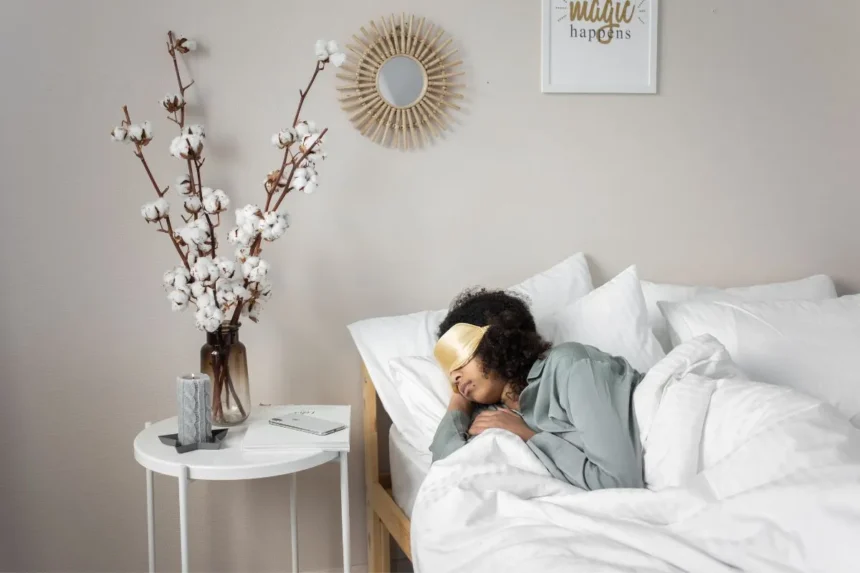A good night’s sleep is essential for physical health, emotional well-being, and mental clarity. Yet, in today’s fast-paced world, achieving restful sleep can be challenging. This is where sleep hygiene comes in. By cultivating positive habits and creating an optimal sleep environment, you can improve your sleep quality and wake up refreshed and energized.
In this article, we’ll explore effective sleep hygiene tips to help you sleep better and lead a healthier life.
1. Create a Consistent Sleep Schedule
One of the most important aspects of sleep hygiene is maintaining a regular sleep schedule. Going to bed and waking up at the same time every day helps regulate your body’s internal clock. Try to stick to this schedule even on weekends to promote a natural sleep-wake cycle.
Tip: Aim for 7-9 hours of sleep each night, as this is the recommended amount for most adults.
2. Establish a Relaxing Bedtime Routine
Developing a calming pre-sleep routine can signal to your body that it’s time to wind down. Activities like reading, taking a warm bath, or practicing deep breathing exercises can promote relaxation. Avoid stimulating activities, such as watching TV or working on your phone, as they can make it harder to fall asleep.
Tip: Engage in mindfulness or meditation techniques to calm your mind before bed.
3. Limit Caffeine and Nicotine Intake
Stimulants like caffeine and nicotine can disrupt your ability to fall asleep. While a morning cup of coffee is fine for most people, consuming caffeine in the afternoon or evening can interfere with sleep. Nicotine, found in cigarettes and some e-cigarettes, is also a stimulant that can prevent restful sleep.
Tip: Try to avoid caffeine at least 6 hours before bedtime to improve your sleep hygiene.
4. Optimize Your Sleep Environment
Your bedroom should be conducive to sleep. Keep it cool, quiet, and dark to create the ideal setting for rest. Investing in a comfortable mattress and pillows is also essential to your overall sleep experience. If noise or light is unavoidable, consider using earplugs, a white noise machine, or blackout curtains.
Tip: Make your bedroom a technology-free zone to eliminate distractions and boost your sleep hygiene.
5. Be Mindful of Your Diet
What you eat and drink can significantly affect your sleep. Avoid heavy meals, alcohol, and sugary snacks before bedtime, as they can cause discomfort or indigestion. Instead, opt for light snacks like almonds or a small bowl of oatmeal, which can promote better sleep.
Tip: Consider foods rich in magnesium, such as bananas or leafy greens, as part of your bedtime snack to support restful sleep.
6. Get Regular Exercise
Physical activity can help regulate sleep patterns and reduce the time it takes to fall asleep. However, exercising too close to bedtime may have the opposite effect, making it difficult to wind down. Aim for at least 30 minutes of moderate exercise daily, but try to finish workouts several hours before bed.
Tip: Engage in light stretching or yoga in the evening to help relax your muscles and improve sleep hygiene.
7. Limit Screen Time Before Bed
The blue light emitted by phones, tablets, and computers can disrupt the production of melatonin, the hormone that regulates sleep. Try to avoid screens for at least 30 minutes to an hour before bed. Instead, engage in relaxing activities that do not involve electronics.
Tip: Use blue light-blocking glasses if you must use devices in the evening to support better
8. Manage Stress and Anxiety
Stress and anxiety are common culprits of poor sleep. Whether it’s work-related stress or personal concerns, an overactive mind can make it difficult to relax. Incorporating stress-reduction techniques such as journaling, meditation, or progressive muscle relaxation can help clear your mind before bed.
Tip: Set aside a specific “worry time” earlier in the day to address concerns, so they don’t interfere with your sleep hygiene at night.
9. Be Conscious of Napping Habits
While napping can be beneficial, especially for those who don’t get enough sleep at night, long or late naps can interfere with your nighttime sleep. If you need to nap, try to keep it under 30 minutes and avoid napping in the late afternoon.
Tip: If you struggle with insomnia, avoid naps altogether to improve your sleep hygiene.
Conclusion
Practicing good sleep hygiene is key to enjoying a healthier, more energized life. By following these tips—creating a consistent sleep schedule, optimizing your environment, and managing stress—you can enhance the quality of your sleep and feel more refreshed every morning. Prioritize sleep hygiene as part of your overall well-being, and you’ll likely notice significant improvements in your mood, focus, and energy levels.
Get more info: https://www.timelinetale.com/







